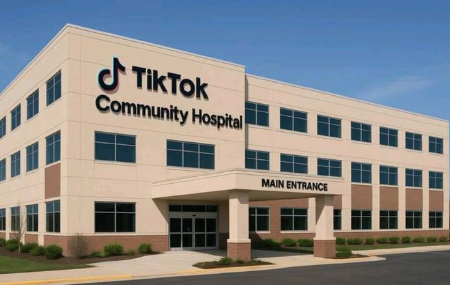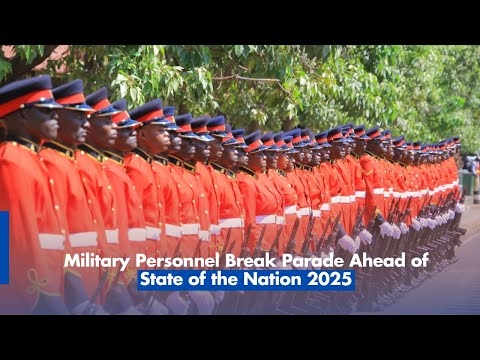
 An artist's impression of the supposed TikTok Community Hospital
An artist's impression of the supposed TikTok Community HospitalSocial media platforms—particularly TikTok—are abuzz with a viral campaign claiming that Kenyan users have launched a movement to crowd-fund the construction of a hospital.
The proposed facility, dubbed the “TikTok Community Hospital,” aims to provide free, specialised medical care, including cancer treatment, heart disease services, and general healthcare, in response to ongoing challenges in the national health system.
The campaign is said to have taken off in late September 2025 and has since attracted considerable attention from both local and diaspora users.
Although the movement remains largely informal—with no official organisation or registered fundraising platform—TikTok is flooded with videos, AI-generated concept images of the hospital, and messages of support.
Users are calling on Kenya’s estimated 10 million TikTokers to “do what the government can’t” and “build hope where systems have failed.”
The campaign appears to be fueled by public frustration over high medical costs, medicine shortages, and disruptions caused by prolonged doctor strikes.
In particular, the health crisis where doctors have been on strike for months due to unpaid salaries and poor working conditions, has highlighted the fragility of Kenya’s devolved health services.
Another driving force behind the movement is concern over low enrollment in the government’s new health insurance scheme, the Social Health Authority (SHA).
Campaigners claim that low subscription rates have left many Kenyans exposed to out-of-pocket medical expenses.
However, the government disputes this claim. Health Cabinet Secretary Aden Duale has announced that over 26 million Kenyans had enrolled in the SHA’s flagship Taifa Care programme by the end of September 2025—a significant milestone since it replaced the National Health Insurance Fund (NHIF) exactly one year ago.
Despite this official progress, the TikTok campaign suggests a growing perception gap between government metrics and lived realities, especially among youth and low-income populations.
The online hospital campaign has also been supercharged by the emotional impact of a viral story involving 17-year-old content creator Vincent Kaluma, popularly known as Kaluma Boy, from Othaya in Nyeri County.
In a series of raw and emotionally gripping TikTok videos, Kaluma documented his life as a young caregiver to his father, who suffered a stroke in 2024.
Kaluma, depicting daily struggles, sacrifices, and the lack of medical access in rural Kenya, struck a deep chord with many viewers.
The online community responded with unprecedented generosity, raising funds for his father’s care and elevating Kaluma to a symbol of Kenyan youth resilience.
Although no formal fundraising has been launched and the
campaign is still largely aspirational, the idea is gaining momentum.
TikTokers from around the world, especially Kenyans in the diaspora, have voiced their willingness to contribute once a clear structure is put in place.







![[PHOTOS] Betty Bayo laid to rest in Kiambu](/_next/image?url=https%3A%2F%2Fcdn.radioafrica.digital%2Fimage%2F2025%2F11%2F3b166e2e-d964-4503-8096-6b954dee1bd0.jpg&w=3840&q=100)







